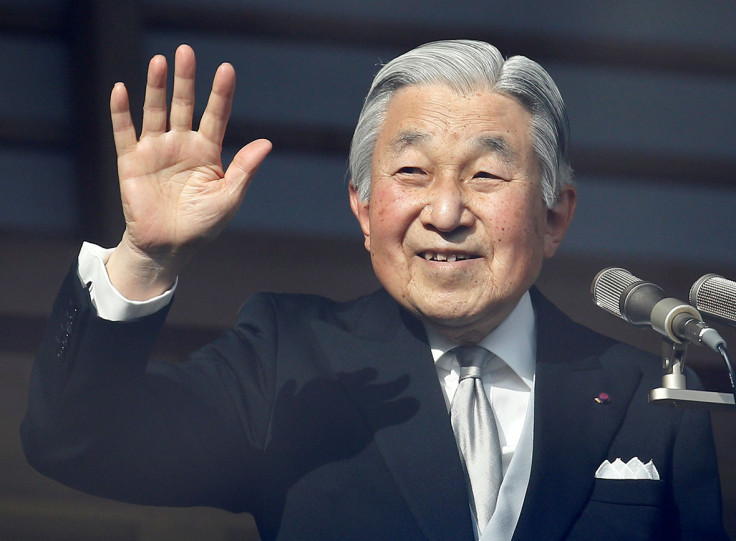Emperor Akihito: Japan cabinet approves bill to allow first abdication in 200 years
Emperor Akihito announced his desire to retire in August 2016, and will hand over the throne to Crown Prince Naruhito.
Japan's cabinet has approved a one-off bill, paving the way for ageing Emperor Akihito to hand over the throne to Crown Prince Naruhito, in what is believed to be the first abdication by a Japanese emperor in nearly 200 years.
Prime Minister Shinzo Abe's cabinet signed off on the legislation on Friday (19 May). The bill will next be sent to parliament, where lawmakers are expected to approve it before the end of the current session in June, Chief Cabinet Secretary Yoshihide Suga told reporters.
"The government hopes for the smooth passage of the legislation," Reuters quoted Suga as saying.
There has been no definite plan when the emperor will step down, but local media reports suggest that the government envisions late 2018 as a possible timing for his abdication.
Akihito, who turns 85 years next year, would mark nearly 30 full years on the Chrysanthemum Throne as the emperor.
Reports of the 83-year-old emperor's desire to retire surprised Japan when they emerged in July 2016. The country's constitution does not give the emperor any political powers.
In a rare televised speech in August, Akihito announced his abdication wish citing age and health concerns. He has undergone a heart surgery and a treatment for prostate cancer, which is led to fear he might not be able to fulfil his royal duties.
In a pre-recorded message, which lasted for 10 minutes, he had said, "My age has already exceeded 80, and I'm happy to be still healthy. But when I think of my declining physical strength, I'm worried it will be difficult to perform my duties as a symbol." The emperor avoided using the word "abdication" in his address.
Earlier in February, Naruhito had expressed his readiness to take over the throne, and pledged to follow his father's footsteps and "share the pain and joy of the people".
The last time an emperor stepped down was in 1817. The current law was set in 1947 and bans abdication as it is seen as a potential risk to political stability.

The bill approving Akihito's abdication is reported to be specifically designed for the current emperor so as to prevent others following suit.
It stated the public's "understanding" and "sympathy" for Akihito's "deep concern" about his fears that he might be unable to fulfil his royal duties.
The bill, however, did not make any reference to the controversial issue of changing the system to allow a female emperor. Under the country's Imperial Household Law, only a male heir can inherit the Chrysanthemum Throne. The bill also did not mention about the imperial family allowing women to stay in the palace upon marriage, Reuters noted.
Japanese media reported that the Abe government is discussing a separate resolution on the topic.
A change to the law was briefly considered in 2005 to allow a woman to take over the throne. However, the plan was soon dropped after Akihito's second son's wife gave birth to a son, who can inherit the throne.
© Copyright IBTimes 2025. All rights reserved.





















